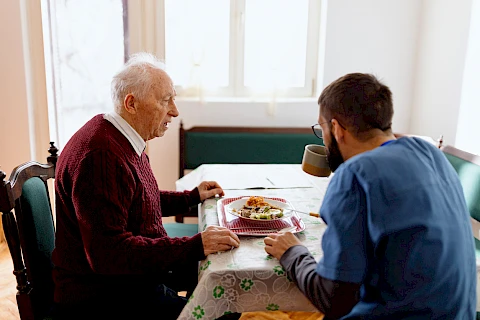
Parkinson's disease is a chronic, progressive neurological condition that affects the nervous system, leading to a variety of motor and non-motor symptoms. Among the various ways to manage this condition, diet and nutrition play a vital role, making a significant difference in the overall well-being of those living with Parkinson’s. Discover valuable insights into the appropriate dietary choices that can potentially alleviate Parkinson's symptoms, improve quality of life, and align with the unique nutritional needs of people with Parkinson's.
The Role of Nutrition in Managing Parkinson's Disease
The role of nutrition in managing Parkinson's disease is multi-faceted. Proper diet can help alleviate some Parkinson's symptoms, prevent other health complications, and improve overall well-being. Some medications for Parkinson's are affected by the foods you eat or may cause side effects that can be managed with a proper diet. Understanding these nutritional needs is a significant part of our Parkinson's care services at Senior Helpers, where we ensure seniors receive balanced and customized dietary care.
Foods That Can Alleviate Parkinson's Symptoms
Several foods can potentially alleviate Parkinson's symptoms or side effects of medication. These foods include fruits and vegetables high in antioxidants—like berries and leafy greens— that protect brain cells. Lean proteins can also aid in repairing and building new cells, supporting brain health. Foods rich in Omega-3 fatty acids, such as fish and nuts, can reduce inflammation and support brain function. Incorporating these foods into the daily meals of seniors with Parkinson's disease is a crucial part of our care routine at Senior Helpers.
Dietary Tips for People With Parkinson's
Maintaining a balanced diet is vital for people with Parkinson's. They should consume a variety of foods to ensure they get a wide range of essential nutrients. Fiber-rich foods can help manage constipation, a common issue for those living with Parkinson's. Also, eating regular, balanced meals with adequate protein can help the body better absorb Parkinson's medications.
However, eating can sometimes be a challenge due to symptoms such as difficulty swallowing. At Senior Helpers, we assist with adapting meal plans to accommodate these changes, such as using softer foods or thickening liquids to make swallowing easier.
Importance of Hydration for Parkinson's
Dehydration can exacerbate Parkinson's symptoms and interfere with the body's absorption of medications. Therefore, ensuring adequate hydration is critical. People with Parkinson's should aim to drink enough fluids throughout the day, keeping in mind that needs may increase during hot weather or with increased physical activity. At Senior Helpers, we prioritize monitoring and managing hydration levels in individuals with Parkinson's, as every facet of their health is critical to their quality of life.
Get Help from Expertly Trained Caregivers from Senior Helpers Richmond, MI
The role of diet and nutrition in managing Parkinson's disease is crucial. A balanced diet rich in antioxidant foods, lean proteins, fiber, and plenty of water can contribute to alleviating symptoms, improving overall well-being, and enhancing medication effectiveness. At Senior Helpers, we understand these nutritional needs and incorporate them into our comprehensive Parkinson's care services.
If you live in Richmond, Macomb, Port Huron, or Utica, Senior Helpers Richmond, MI, is ready to assist you or your loved one. We are committed to providing quality in-home senior care, offering services that range from companionship to specialized care for those with Parkinson's disease. Our dedicated team of professionals can help seniors maintain a healthy diet, provide support with meal preparation, and monitor hydration levels, ensuring the best possible care for each individual. Contact us today to learn more about how we can assist in managing a healthy lifestyle for seniors with Parkinson's disease.